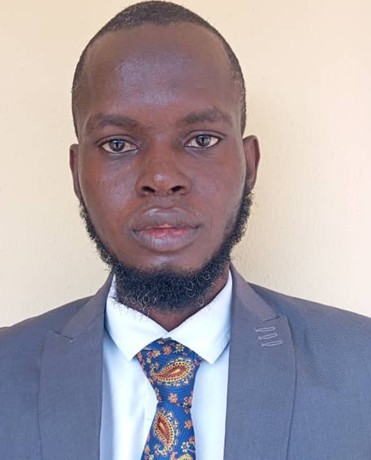The Microbiology Department conducts research on diseases of public health importance to influence policy for national development, guided by the principles of Good Clinical Practice. We provide clinical diagnostic services to clients across the country, including private and corporate organizations, as well as patients at the NIMR clinic.
A key mandate of the department is capacity development for laboratory staff, health workers, and undergraduate and postgraduate students. This includes training on Laboratory Quality Management (using the ISO 15189 standard), as well as technical and analytical skills.
The Microbiology Department comprises three centers:
- Center for Human Virology and Genomics (CHVG)
- Center for Tuberculosis Research (CTBR)
- Center for Infectious Disease Research (CIDR)
Meet the Head of Department
Dr. Uche Thecla Igbasi is a Senior Research Fellow and the Head of the Microbiology Department at the Nigerian Institute of Medical Research (NIMR). She is a Medical Parasitologist, Field Epidemiologist (NFETP), and the Team Lead of the Parasitology Immunogenetics Research Group. Her research focuses on host genetic diversity in infectious disease transmission and the molecular surveillance of antimalarial drug resistance. She also investigates non-malaria febrile illnesses, particularly those caused by Borrelia species.
Dr. Igbasi has extensively studied malaria, tuberculosis, and malaria/tuberculosis co-infections, providing critical insights into drug-resistant Plasmodium falciparum genes in Lagos, Nigeria, and the profile of immunoglobulin E and G, cytokines and endothelial adhesion molecules among uncomplicated malaria cases in Lagos, Nigeria. She has received several awards, including the NIH Fogarty EN-RTP mentored award (2020) and the 2023 NIMR Grantsmanship and Mentorship Fellowship. Additionally, she serves as an adjunct Senior Lecturer at the Medical Laboratory Science Department, Trinity University, Lagos, Nigeria. As a Quality officer, she coordinated Laboratory Quality Management Systems (ISO 15189) at the National TB Reference Laboratory, NIMR (2004-2017).
Dr. Igbasi played a key role in National programs like the Antimalarial Drug Therapeutic Efficacy Surveillance (TES) and the National Multidrug-resistant TB Surveillance as a WHO-Certified Level-1 microscopist and Consultant respectively.
Adjuncts in Microbiology

Dr. Uche Thecla Igbasi
BMLS, MSc, FMLSCN, PhD, NFETP
Senior Research Fellow
Head, Microbiology Department

Ehimario Uche IGUMBOR
MPH, PhD
Centre for Infectious Disease Research
Professor of Epidemiology with extensive experience in public health projects in South Africa and Nigeria. His research expertise falls within the aegis of epidemiological estimations and modelling of infectious diseases notably HIV/AIDS, burden of disease analyses; strategic health information generation and use; cohort studies on structural determinants of health; conduct of large-scale health surveys; and in training and capacity development in Public Health.
He chairs the Scientific Advisory Group of the Nigeria COVID-19 Research Coalition (NCRC) where he also leads the Epidemiological Studies Working Group. He is regularly consulted on epidemiology/public health assignments by WHO, UNAIDS, UNICEF, UNFPA and supports the NCDC, NACA and the FMoH. He has over 120 publications including peer-reviewed journal articles, book chapters and technical/scientific reports and is a much sought-after panellist and discussant on Public Health topics.

Dr. Odulate Ibrahim Oladipupo
MBBS, FMCPath, DipRCPath (Infection)
Dr. Odulate Ibrahim is a Consultant Clinical Microbiologist and Parasitologist with expertise in diagnostic microbiology, infectious diseases, and antimicrobial resistance. He is a Fellow of the National Postgraduate Medical College of Nigeria and a Diplomate of the Royal College of Pathologists (UK).
He has extensive experience in laboratory diagnosis and clinical management of infectious diseases, with a focus on evidence-based care and antimicrobial stewardship. His academic interests include resistance mechanisms, the epidemiology of hospital- and community-acquired infections, and interactions between infectious and non-communicable diseases.
As the Residency Training Coordinator of his department, Dr. Odulate is deeply engaged in the academic development and mentorship of medical students, resident physicians, and laboratory scientists. His dedication to advancing medical education is further reflected in his co-authorship of A&R’s Recent Advances in Medical Microbiology.
He has presented scientific work at professional meetings and continues to expand his research in medical microbiology and infectious diseases. His overarching goal is to integrate clinical practice, education, and research to strengthen diagnostic services and healthcare delivery in Nigeria and beyond.


